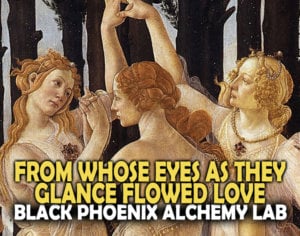Sorores Genita Nocte, Aigles Kharities

Roe v. Wade was overturned, and in one stroke everyone in America who possesses a uterus is no longer a free and equal citizen of the United States. We are unpersoned. Reproductive rights are no longer federally protected, and the barn door has been kicked down for states that want to ban abortion outright. It is a truly terrifying time: not only are we returning to a era of dangerous abortions, but we are entering a dark unknown wherein pregnancy itself is under state surveillance and even miscarriage can be investigated as a crime.
Not only is the destruction of Roe v. Wade a catastrophe for reproductive and civil rights, it is also a blow to privacy for everyone. It wasn’t until 1965, in Griswold v. Connecticut, that the Supreme Court recognized a constitutional right to privacy, acknowledging that while the Bill of Rights does not specifically enumerate a federal “right of privacy”, zones of privacy – that is, freedom from interference from the government – can be inferred from the First, Third, Fourth, and Fifth Amendments. In concurring opinions, Justices argued that the Ninth Amendment (acknowledging that there are some constitutional rights that are not explicitly outlined or mentioned in the Bill of Rights) and the due process provisions of the Fourteenth Amendment also created a constitutionally granted right to privacy that exists within the penumbra of these protections. Because of this, married couples were permitted access to contraception. Griswold set the precedent for future privacy cases, including Roe v. Wade.
In 1973, SCOTUS held — through their decision in Roe v. Wade — that the Due Process Clause of the Fourteenth Amendment “protects against state action the right to privacy, including a woman’s qualified right to terminate her pregnancy” and “though the State cannot override that right, it has legitimate interests in protecting both the pregnant woman’s health and the potentiality of human life.” With that, Roe v. Wade ceased the enforcement of individual state laws that were in place that banned abortion before 24 weeks. SCOTUS further affirmed through Planned Parenthood v. Casey that “the fundamental right of privacy protects citizens against governmental intrusion in such intimate family matters.” Basically, individual state laws prohibiting abortion would violate the Due Process Clause if they created an “undue burden” on a pregnant person’s right to an abortion.
The destruction of the Roe v. Wade decision will now call into question all past SCOTUS decisions predicated on a person’s right to privacy, and Clarence Thomas has made it explicitly clear in his concurring opinion that SCOTUS should reconsider Obergefell v. Hodges (2015), Lawrence v. Texas (2003), and Griswold v. Connecticut, the rulings that have protected same-sex marriage, same-sex relationships, and access to contraception. Think about that— look at those dates. As recently as 2003, it was technically illegal for same sex couples to have sex in FOURTEEN states, and not just in many of the same states that are rushing to criminalize abortion, but in states like Massachusetts and Maryland. All Supreme Court decisions based on the concepts of equal protection under the Fourteenth Amendment are in jeopardy, including those that impact rights that were not available to us during the American Revolution. What will tumble next? What rights that we currently take for granted will go back to being determined by gerrymandered state legislatures? Loving v. Virginia (1967) protects interracial marriage, Katz v. United States (1967) currently protects us against government surveillance, Stanley v. Georgia (1969) protects us from being prosecuted for the possession of “obscene material” as defined by individual states, and Eisenstadt v. Baird (1971) further protects our right to contraception outside of marriage. These all crumble away when the right to privacy defined in Griswold is dissolved.
In addition, with the destruction of Roe v. Wade, there are legitimate concerns that private businesses in the United States can now be dragged (or willfully interject themselves) into the enforcement of legislation. We live in a time of absolute and unprecedented surveillance. A hellish whirlwind of geolocating data, menstruation tracking, search history, social media posts, financial data, and private communications hands advertisers, developers, and — consequentially—– law enforcement all the info they need to determine whether or not a person is seeking an abortion. And when the right to privacy set by Griswold and explicitly extended by Katz is gone, private businesses can use your data to aid law enforcement in the prosecution of your porn habits and condom purchases, too.
Here’s what I’m saying: even if you do not have a uterus and even if you don’t care at all about people who do have a uterus, you need to give a shit.
Initially I had written a lengthy post expressing my rage and despair, but you don’t need to see that. There is plenty of rage and despair crackling through the airwaves as it is. Bluntly put, we have no recourse on a federal level, and you can thank Manchin and Sinema for that. Activism is, for now, just about the only recourse that we have. Take a minute to scream, rage, and drool venom, but when that storm has passed… roll up your sleeves. We have a lot of work to do. Vote in every single god damned election, and encourage your network to vote. Protest, fundraise, donate to abortion funds and pro-abortion organizations, and do what you can to support vulnerable people.
Seven perfumes for the Kindly Ones, seven for the Graces: an offering honoring those who would avenge us, and a prayer that those who are suffering under the yoke of this horror will find peace, safety, and joy. These scents are a fundraiser for the National Network of Abortion Funds. If you choose not to purchase a scent, please consider a direct donation.
Elpis is the only good god remaining among mankind; the others have left and gone to Olympos. Pistis, a mighty god, has gone, Sophrosyne has gone from men, and the Kharites, my friend, have abandoned the earth.
Hope remains. Do not despair.
Art: the Furies Before The Gates Of Dis by Gustave Dore, Orestes Pursued by the Furies by Louis Lafitte, detail of Sandro Botticelli’s Primavera.
Some helpful links –
The ACLU’s Guide to Protesters’ Rights
The Center for Reproductive Rights
Guttmacher Institute: Abortion Rights
Mississippi Reproductive Freedom Fund
The National Network of Abortion Funds
Transgender Advocates Say the End of Roe Would Have Dire Consequences
We’re Not Going Back to a Time Before Roe. We’re Going Somewhere Worse.
-
A Robe All Red With Dripping Gore Perfume Oil
Add to cartBlood musk, red amber, honey, and threads of scarlet saffron.
-
Breathing Destruction From Their Lips Like Flame Perfume Oil
Add to cartDried red fruits, pink peppercorn, black fig, nagarmotha, and vetiver.
-
Dark-Eyed, Delightful Perfume Oil
Add to cartBrown sugar, cacao, toasted cardamom, patchouli, vanilla absolute, and benzoin.
-
Every Sweet Thing Perfume Oil
Add to cartHoney-dripping plakous, rose petals, caramelized hazelnut, and goat’s milk
-
From Whose Eyes As They Glance Flowed Love Perfume Oil
Add to cartSpun sugar, skin musk, orris butter, pale amber, whipped vanilla, and rose petals.
-
Pleasure Abundant Perfume Oil
Add to cartOrange blossom, sweet amber, red honey, pink peppercorn, and frankincense smoke.
-
Precious Beauty Perfume Oil
Add to cartSweet cream, white fig, sugar cane, honey, vanilla silk, sugared oats, and almond cakes.
-
Prospering In Golden Hope Perfume Oil
Add to cartWhite peach, bergamot, orchid petals, tobacco flower, frankincense, and white amber.
-
Through The Gloom The Sisters Rose Perfume Oil
Add to cartBlackened pomegranate, tobacco absolute, benzoin, brown sugar, and droplets of inky wine.
-
Wrapped in Sable Garments Perfume Oil
Add to cartCacao, smoked mahogany, tonka, sweet aged patchouli, and white sandalwood.













